
Human rights are moral principles or norms for certain standards of human behaviour and are regularly protected as substantive rights in substantive law, municipal and international law. They are commonly understood as inalienable, fundamental rights "to which a person is inherently entitled simply because she or he is a human being" and which are "inherent in all human beings", regardless of their age, ethnic origin, location, language, religion, ethnicity, or any other status. They are applicable everywhere and at every time in the sense of being universal, and they are egalitarian in the sense of being the same for everyone. They are regarded as requiring empathy and the rule of law and imposing an obligation on persons to respect the human rights of others, and it is generally considered that they should not be taken away except as a result of due process based on specific circumstances.
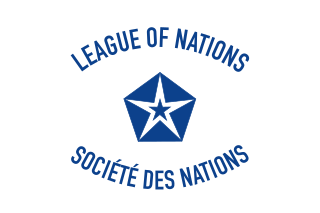
The League of Nations was the first worldwide intergovernmental organisation whose principal mission was to maintain world peace. It was founded on 10 January 1920 by the Paris Peace Conference that ended the First World War. The main organization ceased operations on 20 April 1946 when many of its components were relocated into the new United Nations. As the template for modern global governance, the League profoundly shaped the modern world.
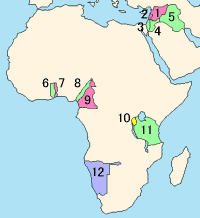
A League of Nations mandate represented a legal status under international law for specific territories following World War I, involving the transfer of control from one nation to another. These mandates served as legal documents establishing the internationally agreed terms for administering the territory on behalf of the League of Nations. Combining elements of both a treaty and a constitution, these mandates contained minority rights clauses that provided for the rights of petition and adjudication by the Permanent Court of International Justice.

South West Africa, renamed to Namibia from 12 June 1968 was a territory under South African administration from 1915 to 1990, after which it became modern-day Namibia. It bordered Angola, Botswana, South Africa, and Zambia. During its administration, South Africa applied its own apartheid system in the territory of South West Africa.
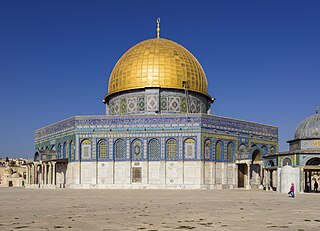
The history of the State of Palestine describes the creation and evolution of the State of Palestine in the West Bank and Gaza Strip.
The International law bearing on issues of Arab–Israeli conflict, which became a major arena of regional and international tension since the birth of Israel in 1948, resulting in several disputes between a number of Arab countries and Israel.

The Southern Cameroons was the southern part of the British League of Nations mandate territory of the British Cameroons in West Africa. Since 1961, it has been part of the Republic of Cameroon, where it makes up the Northwest Region and Southwest Region. Since 1994, pressure groups in the territory claim there was no legal document in accordance to UNGA RES 1608(XV) paragraph 5, and are seeking to restore statehood and independence from the Republic. They renamed the British Southern Cameroons as Ambazonia.

The United Nations Institute for Disarmament Research (UNIDIR) is a research institute of the United Nations focused on disarmament and international security. It was established in 1980 by the United Nations General Assembly with the stated purpose of informing states and the global community on questions of international security, and to assist with disarmament efforts so as to facilitate progress toward greater security and economic and social development for all.

William Emmanuel Rappard was a Swiss academic and diplomat.
The Working Group on Arbitrary Detention(WGAD) is a body of independent human rights experts that investigate cases of arbitrary arrest and detention. Arbitrary arrest and detention is the imprisonment or detainment of an individual, by a State, without respect for due process. These actions may be in violation of international human rights law.
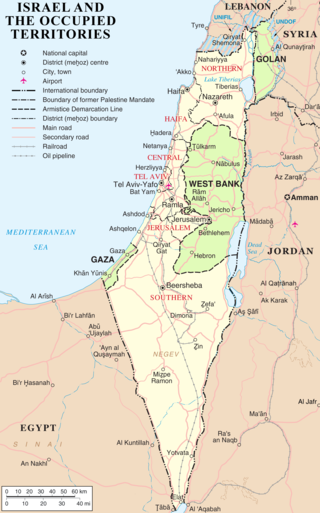
The modern borders of Israel exist as the result both of past wars and of diplomatic agreements between the State of Israel and its neighbours, as well as an effect of the agreements among colonial powers ruling in the region before Israel's creation. Only two of Israel's five total potential land borders are internationally recognized and uncontested, while the other three remain disputed; the majority of its border disputes are rooted in territorial changes that came about as a result of the 1967 Arab–Israeli War, which saw Israel occupy large swathes of territory from its rivals. Israel's two formally recognized and confirmed borders exist with Egypt and Jordan since the 1979 Egypt–Israel peace treaty and the 1994 Israel–Jordan peace treaty, while its borders with Syria, Lebanon and the Palestinian territories remain internationally defined as contested.

The Minority Treaties are treaties, League of Nations mandates, and unilateral declarations made by countries applying for membership in the League of Nations that conferred basic rights on all the inhabitants of the country without distinction of birth, nationality, language, race or religion. The country concerned had to acknowledge the clauses of the treaty as fundamental laws of state and as obligations of international concern placed under the guarantee of the League of Nations. Most of the treaties entered into force after the Paris Peace Conference.
The United Nations Interregional Crime and Justice Research Institute (UNICRI) is one of the five United Nations Research and Training Institutes. The institute was founded in 1968 to assist the international community in formulating and implementing improved policies in the field of crime prevention and criminal justice. Its work currently focuses on Goal 16 of the 2030 Agenda for Sustainable Development, that is centred on promoting peaceful, just and inclusive societies, free from crime and violence.
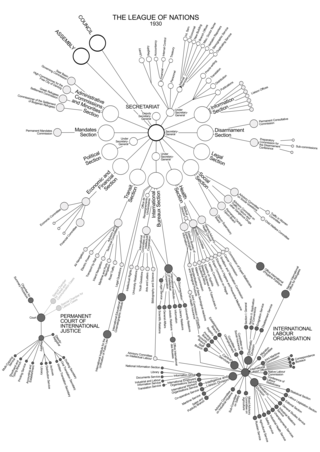
The League of Nations was established with three main constitutional organs: the Assembly; the Council; the Permanent Secretariat. The two essential wings of the League were the Permanent Court of International Justice and the International Labour Organization.

United Nations Security Council resolution 776, adopted on 14 September 1992, after reaffirming Resolution 743 (1992) and noting offers of assistance made by Member States since the adoption of Resolution 770 (1992), the Council authorised an increase in the size and strength of the United Nations Protection Force in Bosnia and Herzegovina and other areas of the former Yugoslavia.

United Nations Security Council resolution 954, adopted unanimously on 4 November 1994, after recalling Resolution 733 (1992) and all relevant resolutions on the situation in Somalia and a recent security council mission to the country, the Council noted the lack of progress in the peace process and decided, under Chapter VII of the United Nations Charter, to extend the mandate of the United Nations Operation in Somalia II for a final time, until 31 March 1995.

United Nations Security Council resolution 1013, adopted unanimously on 7 September 1995, after recalling resolutions 918 (1994), 997 (1995) and 1011 (1995) on the situation in Rwanda, established an international commission of inquiry concerning arms flows to former Rwandan government forces in the Great Lakes region of Africa.

Mandatory Palestine was a geopolitical entity that existed between 1920 and 1948 in the region of Palestine under the terms of the League of Nations Mandate for Palestine.

The Golan Heights are a rocky plateau in the Levant region of Western Asia that was captured by Israel from Syria in the 1967 Six-Day War. The international community, with the exception of Israel and the United States, generally regards the Golan Heights to be Syrian territory held by Israel under military occupation. Following the war, Syria dismissed any negotiations with Israel as part of the Khartoum Resolution.















